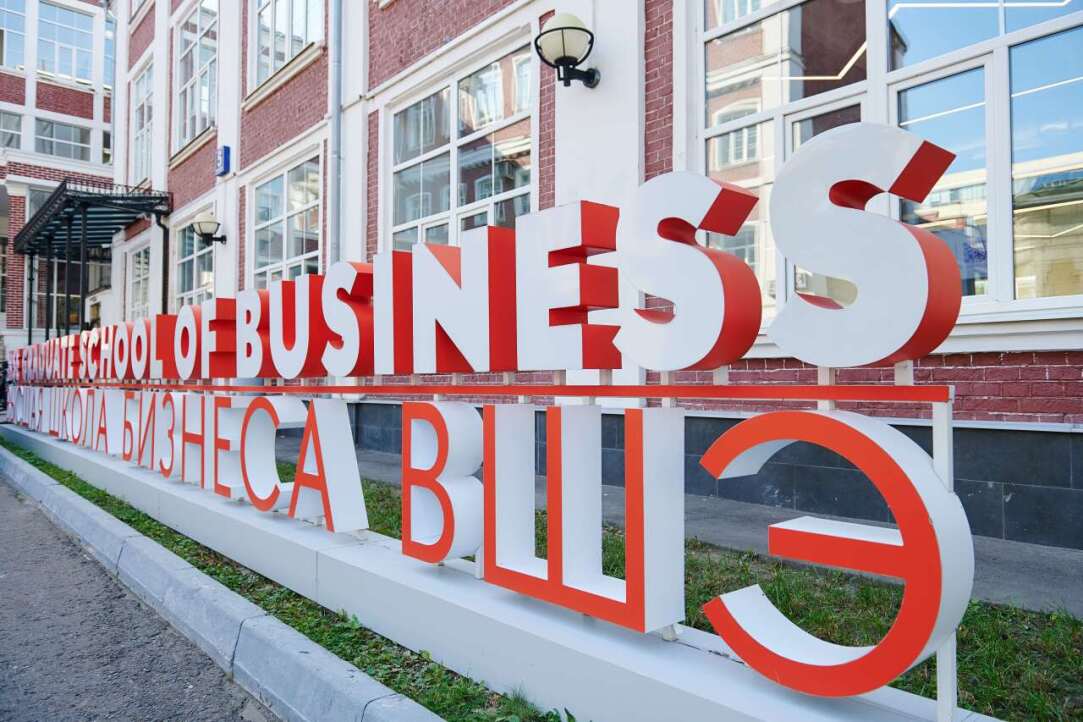
Latin America in Focus: HSE University–St Petersburg and Chilean University Discuss Launch of Digital Professors Programme
Anna Tyshetskaya, Director of HSE University–St Petersburg, held a working meeting with Claudio Ruff Escobar, Rector of Bernardo O'Higgins University (Chile). The head of the Chilean university got to know the new Rope Shop educational space and discussed the prospects of academic cooperation with HSE University–St Petersburg.

HSE Students Participate in World Youth Festival Assembly
Expert sessions, an introduction to Russian culture, and international networking—on September 17–22, Nizhny Novgorod hosted the World Youth Festival Assembly. It united more than two thousand people from 120 countries and various Russian regions and universities, including HSE University–St Petersburg.

HSE Graduate School of Business Climbs Higher in Eduniversal Ranking
The HSE Graduate School of Business has risen to a new level in the prestigious international Eduniversal Best Business Schools Ranking 2025, receiving 4 Palmes of Excellence. This status is awarded to world-leading business schools that demonstrate significant international influence, high academic standards, and sustainable connections with the global professional community.

Extending Human Life and Promoting Active Longevity
Studies of molecular mechanisms of longevity make it possible to explore the potential for a significant increase in life expectancy, including active longevity, when older people maintain their ability to work and sustain social connections. Maxim Shkurnikov, Head of the Laboratory for Research on Molecular Mechanisms of Longevity, spoke with the HSE News Service about the laboratory’s work.

'We Explore Areas Where Much Remains Unknown'
Computational methods for analysing ancient and modern genomes make it possible to study the formation of genetic diversity in populations, reconstruct their history of mixing and migration, and trace the development of environmental adaptations. The HSE International Laboratory of Statistical and Computational Genomics applies mathematical methods and genetic data to address a wide range of issues across fields such as anthropology, epidemiology, and criminology. The HSE News Service spoke with the laboratory head, Vladimir Shchur, about its work.
A Space for Economic Experimentation: LEEF Organises Workshop for Early-Career Researchers
In early September 2025, the renewed Laboratory for Experimental Economics and Finance (LEEF) held its first workshop for early-career researchers. Its main distinguishing feature was that every presentation was based on the results of laboratory economic experiments. In particular, the speakers discussed what people consider a fair deal, how best to motivate employees, and how genes influence the willingness to cooperate and help others. All interested students and postgraduates were invited to collaborate with the laboratory.

Million-Rouble Startup: HSE University Students on Their Projects
Anastasia Yanke and Vadim Yelkin, students of the HSE Tikhonov Moscow Institute of Electronics and Mathematics (MIEM), have each received a grant of one million roubles to pursue their entrepreneurial ventures. The Student Startup programme has been implemented for four years by the Foundation for the Promotion of Innovation as part of the federal project Technology to support startup projects by students of Russian universities. This season, 43 projects of HSE University students are among the winners.

Achieving Financial Independence: Experts Discuss Development of BRICS National Currency Settlements
How can BRICS countries move away from the dollar in international settlements, and what can they do to advance this goal today? These questions were discussed by experts during a round table at HSE University. The event was organised by the Multilateral Strategic Projects Office together with the HSE Faculty of World Economy and International Affairs as part of HSE’s activities within the BRICS Network University and the Joint Basic Research Projects ‘International Academic Cooperation of HSE University.’

Internal Clock: How Heart Rate and Emotions Shape Our Perception of Time
Our perception of time depends on heart rate—this is the conclusion reached by neuroscientists at HSE University. In their experiment, volunteers watched short videos designed to evoke specific emotions and estimated each video's duration, while researchers recorded their heart activity using ECG. The study found that the slower a participant's heart rate, the shorter they perceived the video to be—especially when watching unpleasant content. The study has been published in Frontiers in Psychology.

Start of a Long Journey: Young HSE Scientists Contribute to Learning Theory at COLT 2025
Participation in high-level international events is crucial for the professional development of researchers starting their career in science. It provides an opportunity to exchange ideas, create promising teams, and make important connections. This summer, Denis Ryapolov and Askar Tsyganov, students of the Applied Mathematics and Computer Science programme and staff of the AI and Digital Sciences Institute at the Faculty of Computer Science of HSE University, attended the prestigious international Conference on Learning Theory, COLT 2025, which was held in Lyon, France. In an interview, they shared their experiences and impressions from the trip.

